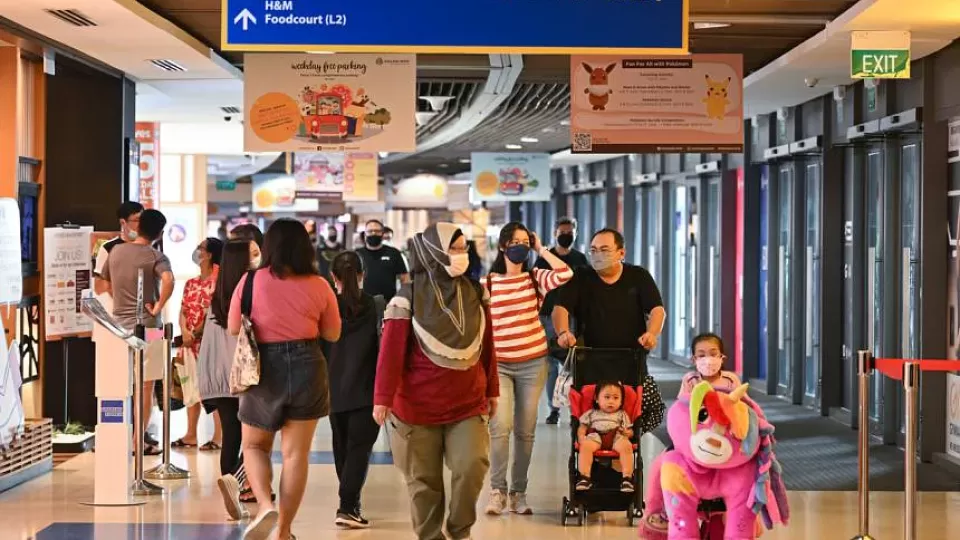August 23, 2022
SINGAPORE – After going through two Covid-19 Omicron waves without its healthcare system being overwhelmed, Singapore is ready to move to the next phase, where indoor mask wearing is no longer mandatory except on public transport and in hospitals, experts said.
Singapore handled the Omicron waves successfully without having to reimpose strict measures, noted Associate Professor Alex Cook, vice-dean of research at the National University of Singapore’s Saw Swee Hock School of Public Health.
“The first Omicron wave, earlier in the year, still had some restrictions in place, and we managed to avoid the healthcare system being overwhelmed. In the second, which is ebbing away now, we managed to avoid overwhelming the healthcare system with almost no restrictions except indoor mask wearing. Thus, we are ready to move to the next phase,” he said.
The degree of resilience against Covid-19 present in the population, due to immunity from vaccination or natural infection, means that those infected are now much less likely to experience severe disease, said Professor Teo Yik Ying, dean of the Saw Swee Hock School of Public Health.
But he agreed that mask wearing is still appropriate in some situations.
“It is important to remember that while the mask mandate will be removed, it does not mean that we should stop wearing masks. For the elderly and immunocompromised, my recommendation is that they should continue to wear masks in crowded indoor settings. This will continue to reduce their risk of catching any respiratory infections, not just Covid-19, that may affect their well-being,” Prof Teo said.
On Sunday (Aug 21), Prime Minister Lee Hsien Loong announced in his National Day Rally speech that masks will soon be required only on public transport and in healthcare settings such as hospitals. With the Covid-19 situation in Singapore stabilising, relaxing mask requirements will help prevent fatigue from the pandemic setting in.
But masks on public transport will still be necessary because it can get very crowded on trains and buses, and one will be exposed to many different people, said Professor Dale Fisher, a senior infectious diseases consultant at the National University Hospital.
“Hospitals may be the last place to remove masks and it may not happen. Patients in hospitals and residents of nursing homes can be very vulnerable to severe disease. So universal mask mandates should remain there at least for now, although I am sure patients would eventually like to see the faces of their doctors and nurses and others caring for them,” Prof Fisher added.
There is a need for indoor mask wearing to eventually be removed as mask wearing is not entirely harmless, the experts said.
It has impact on the environment, children’s learning experience, and on the ability of the deaf to communicate through lip reading, for example, Prof Cook said.
“Masks also create a degree of prosopagnosia – also known as face blindness, which is the inability to recognise people’s faces – in many of us. This can be socially debilitating for those who are badly affected by it,” said Prof Cook.
“When we were actively trying to suppress the pandemic, every little bit helped. But now that most of us have been infected, almost everyone is vaccinated, and most people are boosted, the limited benefits of indefinite mask wearing may no longer trump the harms of mask wearing.”
The Government and Health Ministry will also use evidence-based criteria on when masks are necessary, and if masks are no longer critical, then they should be removed, Prof Fisher said.
“There has been much trust placed in Government and that is because they have been transparent and honest. Removing mask mandates when masks are not needed is consistent with this approach and strengthens the trust our community places on Government,” he noted.



